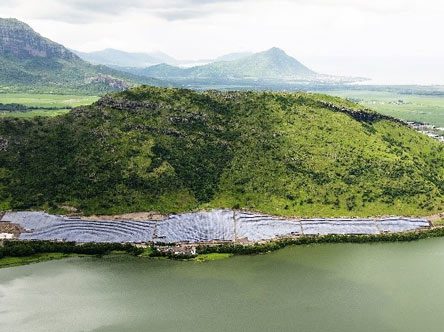Renewable Energy, VCS

Overview: 15.2 MW photovoltaic power plant

The project, on the western side of this climate vulnerable island, is the first power plant of its kind in Mauritius. Consisting of 60,800 solar panels, it is capable of feeding over 22,000 MWh per year of renewable power into the grid; sufficient to supply the needs of more than 35,000 people. Yacht Carbon Offset is pleased to have been the first international buyer of the VCS credits from this renewable power plant.
Benefits: Emissions reductions and sustainable development
This project reduces Greenhouse gas emissions by converting solar energy into electricity which would otherwise have been sourced from fossil fuel power stations. The savings in greenhouse gas emissions are equivalent to 0.999 tonnes of CO2 per MWh of generation output. These reductions are quantified using the United Nations CDM methodology ACM0002 version 16.0.
The solar power plant improves the self-sufficiency of Mauritius by reducing its reliance on imported fuels. Mauritius aims that by 2025, 35% of the island’s energy should be derived from renewable sources; this project represents a significant contribution towards this goal and increases the overall diversity of energy sources.
The project created 300 local job opportunities during the construction phase in addition to 20 permanent jobs after construction. Moreover the involvement of local investors further supports the local economy. Natural resources are used in a sustainable manner during both the construction and operational periods. The chosen site was predominately bare land with shrubs and bushes, essentially devoid of sensitive indigenous flora and fauna, minimising adverse environmental impact.
Project Carbon Credits
Between 01 January 2017 and 31 July 2019, the project operated continuously, generating a total net energy to the grid of 55,166 MWh. Greenhouse gas reductions achieved during the period were equivalent to 55,046 tonnes of CO2. The corresponding carbon credits were verified to the Verified Carbon Standard in August 2019 by LGAI Technological Center, S.A. (documentation available on request).


